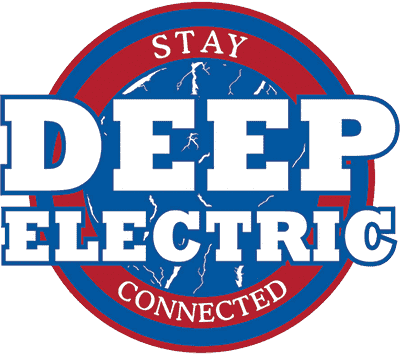How Your Home’s Switches Keep You Safe from Electrical Hazards
Most people think of switches as simple devices that turn lights on and off. But there’s more going on behind that little click. Switches are a first line of defense when it comes to electrical safety in your home. If something goes wrong, a faulty switch could be the first sign. That’s why it’s important not to ignore small issues—especially if you’re often searching for “light switch not working near me” or noticing flickering lights.
Why Switches Matter More Than You Think
Every time you flip a switch, you’re directing power flow. That might sound basic, but it’s a key safety feature. A working switch keeps electricity where it’s supposed to go—and stops it when it shouldn’t.
Think of switches like valves. If a valve leaks, you wouldn’t ignore it. Same goes for a faulty switch. Bad wiring, broken parts, or worn-out switches can cause shocks, overheating, or even fire. That’s why regular checks—and quick fixes—can go a long way.
Common Signs Something’s Not Right
Not sure if your switch needs attention? Here are a few red flags:
- Flickering or delayed lights
- Buzzing or crackling sounds when flipping the switch
- A switch plate that feels warm
- Light not turning on at all
- Burn marks or a faint burning smell
If you’ve noticed any of these, you’re probably already thinking, “Is there someone who handles electrical switch repair near me?” And that’s a smart move.
What Causes Switches to Fail?
Most switch problems come from wear and tear. Over time, internal components get loose or break. Older homes may also have outdated wiring that doesn’t handle modern loads well. Moisture near switches in bathrooms or kitchens can also cause damage.
Another big issue? DIY wiring. If someone installed a switch without proper knowledge, it might work for a while—but it won’t be safe. That’s where a licensed electrician should step in.
Types of Switches That Add Extra Safety
It’s not just about repairs. Upgrading old switches can boost safety too. Here are a few options worth considering:
- GFCI switches (Ground Fault Circuit Interrupters): These are a must in bathrooms and kitchens. They cut power instantly if there’s a risk of shock.
- Smart switches: Some smart switches alert you to electrical issues via an app. Helpful for early detection.
- Illuminated switches: These glow slightly when off, helping you locate them in the dark and offering a small safety upgrade.
What to Do If a Switch Goes Bad
If a light or outlet controlled by a switch isn’t working, don’t wait. It could be a small issue—or a sign of something bigger behind the wall. Start by checking the breaker. If that’s not the problem, you might be dealing with faulty wiring or a burned-out switch.
This is when it makes sense to search for a reliable electrical switch repair near me. A professional can test the switch, inspect the wiring, and replace it safely.
Safety First: Don’t DIY Everything
It’s tempting to handle switch problems yourself, especially if you’re comfortable with basic tools. But electricity is risky business. A wrong move could lead to a shock—or worse. If you’re not sure, call someone trained to fix it right.
When in Doubt, Call Deep Electric
Switches might be small, but they play a big role in keeping your home safe. If yours are acting up—flickering lights, warm plates, or strange sounds—it’s time to get them checked. Don’t wait for a serious problem to pop up.
Need reliable help? Deep Electric is just a call away. With expert electricians and fast, friendly service, they make sure every switch and wire in your home works the way it should. Whether it’s a quick fix or a full upgrade, they handle it all—safely and stress-free.
Let Deep Electric bring the power—and peace of mind—back to your home.
Questions You May Ask
- What should I do if my light switch stops working suddenly?
If your light switch stops working, first check your circuit breaker. If that’s not the issue, it’s best to call a professional for electrical switch repair near you to avoid risks from faulty wiring or broken parts.
- How can I tell if my light switch is unsafe?
Signs of an unsafe switch include flickering lights, buzzing sounds, warm switch plates, or a burning smell. These indicate potential electrical hazards and need immediate attention.
- Can I fix a faulty switch myself?
It’s not recommended unless you have electrical experience. Incorrect repairs can cause shocks or fires. Hiring a professional ensures the problem is handled safely.
- What’s the difference between a regular switch and a GFCI switch?
GFCI switches protect against electrical shocks by cutting power when they detect moisture or faults. They are often used in bathrooms, kitchens, and outdoor areas for added safety.
- How often should I have my switches inspected?
Regular inspections every few years are a good idea, especially in older homes. If you notice any problems sooner, get them checked right away.
